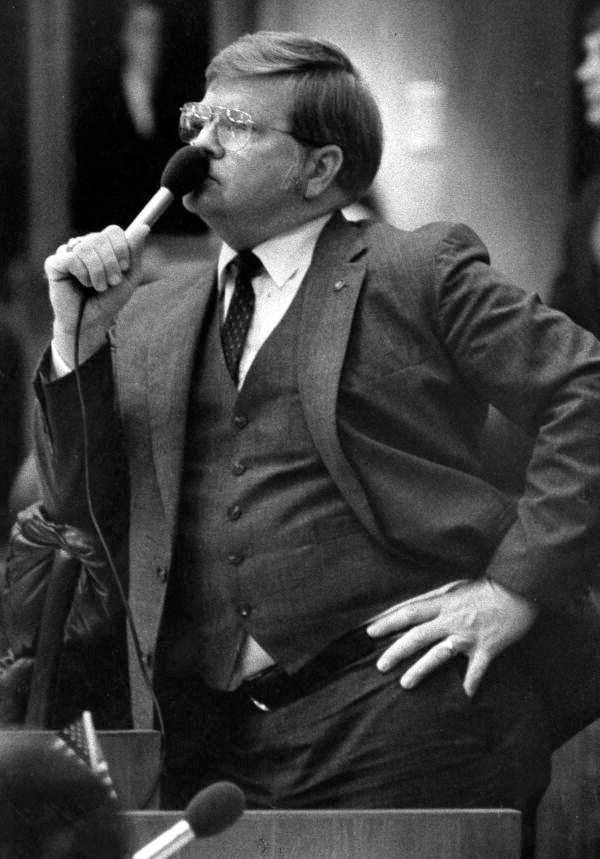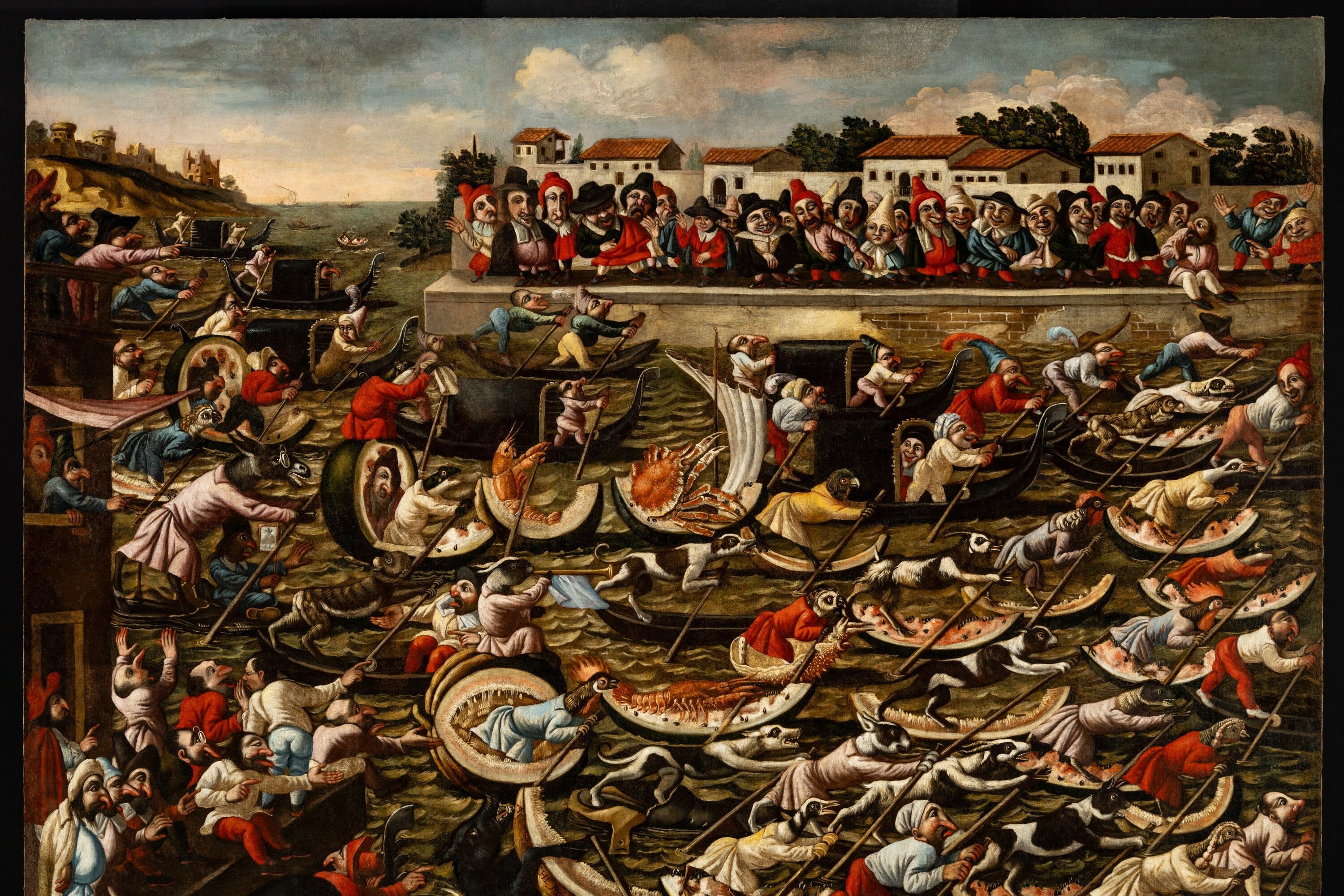Remembering Legislator and Arts Champion Bob Johnson

When I moved here in the 1980s, Bob Johnson was the most powerful person in town. Bob, who died on Aug. 31, a day before his 81st birthday, was an attorney and legislator (he served a total of 16 years in the Florida House and Senate) who secured many millions of dollars for arts, environmental and social causes for our region.
He was also a fixture on the social scene, attending every opening and gala with his wife, Pat, keenly observing everything and everyone, occasionally offering a gruff greeting or terse comment.
He was famous for his no-nonsense determination, and I knew he inspired respect—and even fear—in most people. He certainly did in me. But for a long time, I couldn’t figure him out.
I was well aware of his ever-growing list of accomplishments. As a legislator, he didn’t only bring home the bacon. He was a bold visionary, who, over several decades, helped to create or improve Southwest Florida’s most important assets, from the Ringling Museum and New College to Mote Marine Laboratory and the Sarasota Y—to name only a few. When local arts leaders started squabbling over resources, the story goes, he brought them all into one room and said, “If you don’t learn to get along, I’m going to yank your money away.” That’s how the Sarasota Arts Council, today called the Arts and Cultural Alliance, was born.
The more I learned about him, the more I wondered. How could this blunt bulldog be such a passionate supporter of the sophisticated, nuanced arts world and the architect of so much of our community’s character?
Not until a few years ago, when the Sarasota Y asked me to interview him for a tribute luncheon, did I come to understand who Bob Johnson was.
In his rumbling voice and with a stoic expression, Bob shared his life story. He had a “saintly” mother, but his stepfather, a sergeant in the Air Force, mistreated his wife and eight children and loathed Bob. When his wife died, he forced 16-year-old Bob to drop out of school to help support the family. Bob pumped gas by day and washed dishes at night at the Officer’s Club at MacDill Air Force Base, handing over every penny he earned. As he scrubbed pots, the solemn-faced teenager would overhear speeches by officers like Gen. Curtis LeMay. “It made me want to be like them,” he said. The family moved to Guam when his stepfather was transferred there, and one day Bob saw a notice about a college placement exam. He signed up without telling anyone, and a year later left for Florida State University.
Working multiple jobs, he “earned every dime of college,” he said. But he got his money’s worth. He joined ROTC and Sigma Chi and won top grades and every award in sight. And he also found his life’s mission. He and a friend would go to the Capitol to hear debates, and he was stirred by the lively exchanges, the camaraderie and sense of mission. “I said to myself, ‘I’m going to be a senator,’” he told me. He graduated with $5 in his pocket and a commission in the Air Force.
After the Air Force, he enrolled in divinity school but switched to law at the University of Florida, supporting himself by serving as pastor at two different churches in Gainesville—which meant he was juggling two weekly sets of sermons and other churchly duties with his studies. One Sunday, after an African-American church had burned down and he’d invited the pastor to use one of his churches, a parishioner started ranting at him after services. The young minister’s response? “If I weren’t standing here as a pastor, I’d punch your teeth out!”
When he arrived in Sarasota in 1964, “I was lawyer No. 100,” he said. “They counted them in those days.” In 1970, he was elected to the House. (He continued practicing law throughout his legislative service, coming home every Friday to work all weekend for his clients.) He was brilliantly equipped for politics, with an analytical mind, prodigious memory and the ability to size up people and their motives. And he was also a man of unflinching principle. In his first month in office, he crushed a popular bill to give Lt. William Calley clemency for the My Lai massacres. “I stood up and spoke about war and victims and what true humanity was—it was not killing defenseless women and children,” he said.
A Republican in a House and Senate then dominated by Democrats, he won the respect of the opposing party, and many of his political opponents became his friends. And he seized every opportunity to fulfill his vision of Sarasota as a center of arts and education and environmental beauty. He expanded I-75 south from Tampa, brought USF here, saved New College from bankruptcy and brought it into the state education system, kept the Ringling Museum solvent by making it part of FSU, helped acquire the Crosley estate, won protection for the Myakka River and traveled to France and landed the Sarasota French Film Festival.
Just one example of how he operated: A week after he learned Arvida wanted to build condos for 36,000 people and two golf courses at the south end of Lido Key, he had raised $1 million in seed money for a bond issue to buy the land and make it a county park. He knew for the bond to pass, South County residents would need to get something,w too, so he went to Finn Caspersen, who had huge land holdings in Venice, and persuaded him to sell Caspersen Beach to the county. The bond passed 9 to 1.
A few years ago, I was fortunate enough to have dinner at Bob and Pat’s pecky cypress cabin on the banks of the Myakka. (Bob built most of the cabin himself.) As we listened to gators splash in the river outside and savored Pat’s lemon meringue pie, he talked about how money and partisanship have transformed the legislature. “I would be a total misfit there today,” he said.
His passing marks the end of a golden age of statesmanship; every one of us has lost a champion.



